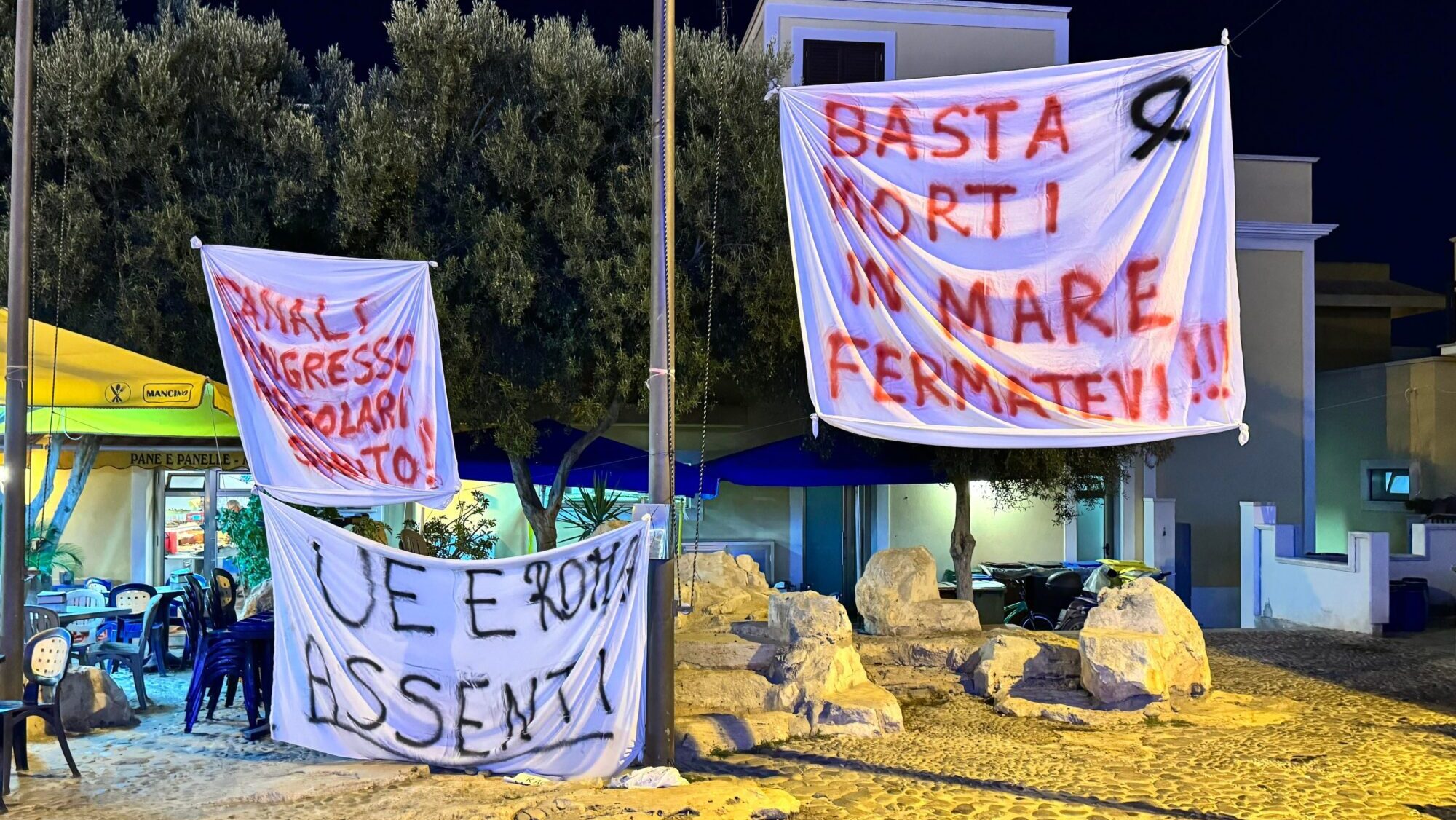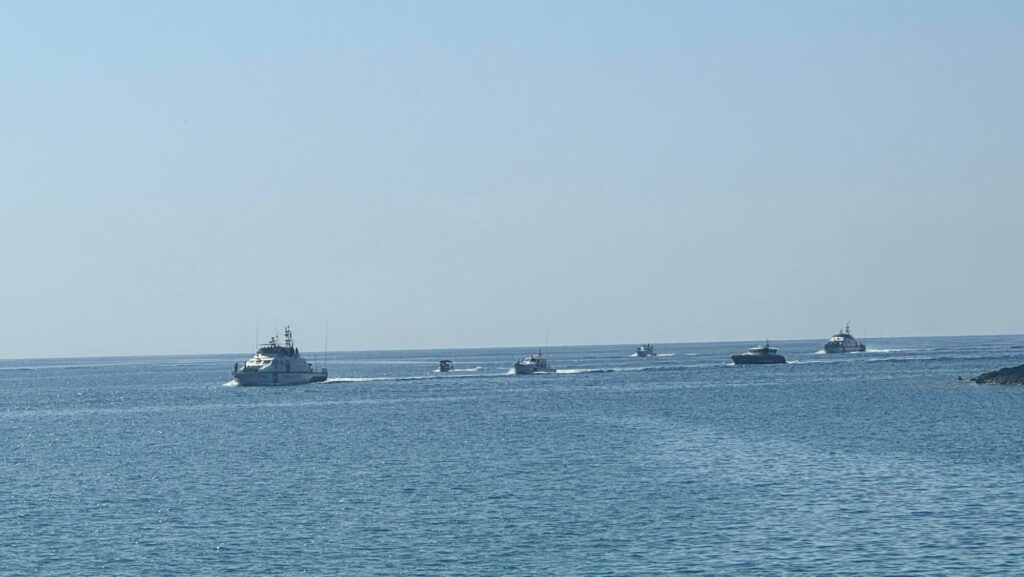
Photo: Tamás Orbán / Chris Tomlinson
LAMPEDUSA—On October 3, 2013, one of the worst migrant boat shipwrecks took place off the coast of the southern Italian island of Lampedusa as people smugglers led an estimated 360 people or more to their deaths. This week, groups from across Europe came to the island to commemorate the tragedy.
Organised by the October 3 Committee, an Italian NGO formed after the 2013 massacre, a four-day event entitled “A Europe of Rights” was held on Lampedusa from September 30th to October 3rd, the anniversary of the shipwreck.
BASTA MORTI NEL MEDITERRANEO! BASTA MORTI INVISIBILI! Adesso in marcia a Lampedusa verso la porta d’Europa.#3ottobre #10annidindifferenza pic.twitter.com/uBxcmMVCn0
— Comitato 3 ottobre (@C3ottobre) October 3, 2023
High school students from 36 schools across eight European Union member states participated in the events, which included workshops and a commemoration of the migrants who died.
Participants were clearly visible walking the streets of Lampedusa, with many wearing t-shirts that called for ‘rights for people, not rights for borders,’ indicating an open-borders message, with little to no signs of awareness of the role people smugglers and traffickers play in the deaths of migrants who try and cross the Mediterranean Sea illegally to Europe.
The only ones that seem to be missing, noted the event’s chief organiser Tareke Brhane, are those from Rome’s Palazzo Chigi—the representatives of Giorgia Meloni’s conservative government. However, the Vice President of the Italian Senate, Maria Domenica Castellone from the liberal 5-Star Movement, did attend.
Apart from the necessary commemoration of the tragic loss of lives, the speeches in the small town’s historic centre, and later at the ‘Gate of Europe’ monument, all revolved around some combination of criticising European countries and the EU for their unkept promises and lack of appropriate refugee policies.
The organisers called out Europe’s “indifference” to the 27,000 deaths in the Mediterranean that occurred in the past ten years; the general “hostility” of European governments towards refugees; the “war on NGOs” and how immoral is it to brand them human smugglers; and even Brussels, for entering into “pacts with the devil” by attempting to foster cooperation with North African states, allegedly led only by “warlords” and “dictators.”
“Ten years have passed since the tragedy of the 3rd of October and the human rights of refugees are still far from being respected in Europe,” Dunja Mijatović, the Council of Europe’s Human Rights Commissioner said in her video address after apologising for not being there in person, urging European countries to open “safe and legal” routes instead of closing borders and to centralise European search and rescue operations—echoing calls from the Left in the European Parliament.

The event comes as the Central Mediterranean route has already seen some of the worst migrant boat shipwrecks ever this year, including one off the coast of Calabria in February that led to the deaths of over a hundred migrants, with some estimating the death toll as high as 200.
Just months later, another boat that was heading for Italy sank off the coast of Greece with at least 79 people dying, though some claimed that hundreds of migrants died as the boat sank, with the International Organisation for Migration (IOM) stating that as many as 750 people were crammed onto the overloaded boat.
Nine suspected people smugglers were later arrested in connection to the sinking of the ship, all of them Egyptian nationals.
Lampedusa lies at the heart of the Central Mediterranean route and is often a target for small boats as it lies closer to Tunisia than Sicily and has seen large waves of illegal arrivals this year, with one day alone last month seeing a record 5,000 migrants arrive on the island, which is home to just over 6,000 people.
The deputy mayor of the island, Attilio Lucia, commented on the staggering numbers saying, “These numbers lead me to think of an invasion rather than a migratory phenomenon. I feel like saying ‘enough’.”
So far, according to statistics from UNHCR, an estimated 133,826 migrants have arrived illegally in Italy by boat as of October 2nd, the highest figures since 2016. Along with the rise in arrivals has been a surge of migrant deaths at sea, with UNHCR claiming as many as 2,500 people either dead or missing so far this year.
Italian Prime Minister Giorgia Meloni, along with European Commission President Ursula von der Leyen, negotiated an agreement on migration with Tunisia earlier this year but the country’s Interior Minister Kamel Fekih has claimed that there is little his country can do to stop the boats.
“From the beginning, we have emphasised that migration cannot be managed without addressing its causes. But Tunisia can only protect its own borders. It cannot be a border guard for others, except [indirectly] by monitoring its own borders,” he told the broadcaster Deutsche Welle.
